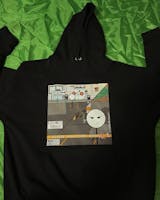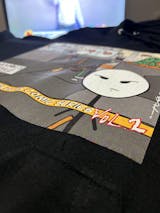Proper curing in dtf transfer is important in terms of print quality and durability. Thanks to print curing, the clarity of the print is ensured and the prints transferred to the fabrics are kept clear for a long time and do not deteriorate. In addition, in print designs with high color density, the fading of the print is eliminated with the curing method and a clear image is achieved. In case of insufficient curing in the print, the problem of wear of the print may occur over time. The correct curing technique should be applied in order for the prints to have a durable performance in washing and use. With the curing method that prevents the colors from fading, the prints maintain their liveliness for a long time. With the curing performed without damaging the fabric texture, colored prints create an aesthetic appearance for the buyers with their liveliness.
It is important to cure at the correct setting in the print curing method. As a result of incorrect and faulty curing, there may be a deterioration in the quality of the prints and color bleeding. Curing done at the right rate while preserving the structure of the print and fabric provides a quality and high-performance appearance. Correct curing should be done so that the colors remain constant and do not bleed over time. Successful curing prevents the print from deteriorating during washing and maintenance by ensuring that it is fixed to the fabric and adheres correctly. Thanks to this technique, high-quality and vibrant designs suitable for long-term use are at the forefront with their durability.
Incorrect Application or Curing in DTF Prints
When creating DTF print designs, meticulously prepared products and correct planning are required. In carefully prepared print designs, the compatibility of the material and fabric determines the quality of the prints. It is important to make a plan and use the equipment correctly in order to avoid mistakes at every stage of the print. Incorrect temperature applications are among the errors that frequently occur in printing. When the wrong temperature is applied, the print deteriorates and the fabric is damaged. The heat setting must be adjusted correctly for the correct transfer of print designs. Incorrectly applied film types in printing affect the quality of the print. Incorrect applications and curings negatively affect the print designs and cause the designs to deteriorate.
In order to avoid incorrect applications in printing, it is necessary to pay attention to the type of film, materials and correct heat settings used. It is also important to take care not to damage the designs during print curing. Adjusting color options and utilizing technological software developed to find solutions to blur problems facilitates the process. The adhesion of designs to the fabric with equal temperature distribution provides successful results. The meticulous preparation of prints and the meticulous completion of the stages in delivery improve the print appearance. The use of appropriate materials in printing and the careful curing technique yield successful results in dtf printing designs.
What Awaits the Dtf Process with Its Renewed Designs?
Many print designs emerge with the constant updating of dtf printing designs. The product of renewed seasons is created with dtf prints in prints that we frequently encounter in every field. dtf designs prepared in many fields determine innovative targets by being applied to various fabrics and non-fabric surfaces. Extraordinary prints await the dtf process with the formation of innovative designs. Renewed designs are found in many places with the emergence of multi-dimensional and realistic designs in every field from home decoration to the fashion sector and work clothes. Offering advanced visual products to customers in many fields with innovative projects that will positively affect the dtf process adds innovation to printing processes.








